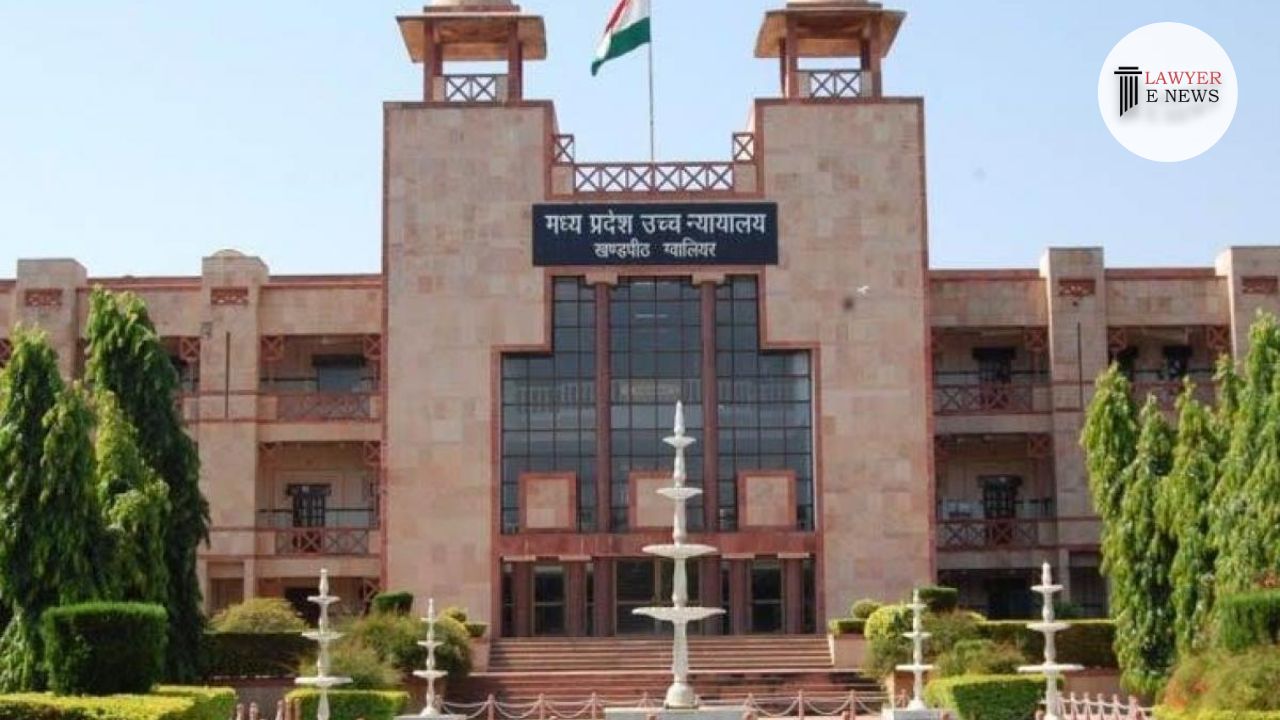-
by sayum
19 February 2026 7:31 AM



Indore, Madhya Pradesh - In a recent judgment, the High Court of Madhya Pradesh, before Hon'ble Shri Justice Subodh Abhyankar, dismissed a civil revision and restored a civil suit. The judgment was passed on the 27th of April, 2023, in Civil Revision No. 27 of 2013.
The petitioner, Gajraj Singh, had filed the civil revision under Section 115 of the Code of Civil Procedure, 1908, against the order passed by the learned IInd Additional District Judge, Khargone. The District Appellate Court had reversed the order of the Trial Court and remanded the matter back, restoring the civil suit.
The facts of the case involved a civil suit filed by the petitioner for declaration, possession, and mesne profit regarding a piece of land in Khargone. While the defendant Nos. 3 and 4 had filed a written statement and contested the matter, the defendant Nos. 1 and 2 remained ex-parte. The decree was passed, and during the execution of the decree, the defendant Nos. 3 and 4 came to know about the ex-parte decree and filed an application to set it aside. The Trial Court rejected their application, stating that they were properly served and had refused to appear before the Court. The defendant Nos. 3 and 4 then appealed to the District Appellate Court, which found that they were not properly served.
The petitioner's counsel argued that the District Appellate Court erred in not appreciating the proviso to Rule 13 of Order 9 of the CPC, which states that a decree passed ex-parte shall not be set aside merely on the ground of an irregularity in the service of summons unless the defendant had notice of the hearing date and sufficient time to appear. The petitioner relied on a Supreme Court decision in support of this argument.
The respondent's counsel contended that the District Appellate Court had not committed any illegality in holding that the defendant Nos. 3 and 4 were not properly served. They referred to another Supreme Court decision to support their stance, emphasizing that the process server had failed to affix the notice as required by Order 5 Rule 17 of the CPC, leading to non-service of the summons.
After considering the arguments and reviewing the record, the High Court held that the process server had not properly affixed the notice as required by the CPC. In line with the Supreme Court's ruling, the High Court concluded that the service of summons on the defendant Nos. 3 and 4 should be treated as non-service. Therefore, the Court found no illegality or jurisdictional error in the District Appellate Court's decision to reverse the Trial Court's order and remand the matter back.
Consequently, the High Court dismissed the civil revision, vacated the stay on the civil suit, and directed the Civil Court to expedite the proceedings and conclude the matter as expeditiously as possible.
The judgment serves as a reminder of the importance of properly serving notices and adhering to the procedures outlined in the Code of Civil Procedure.
27th OF APRIL, 2023
GAJRAJ SINGH vs HEERA SINGH AND others .
